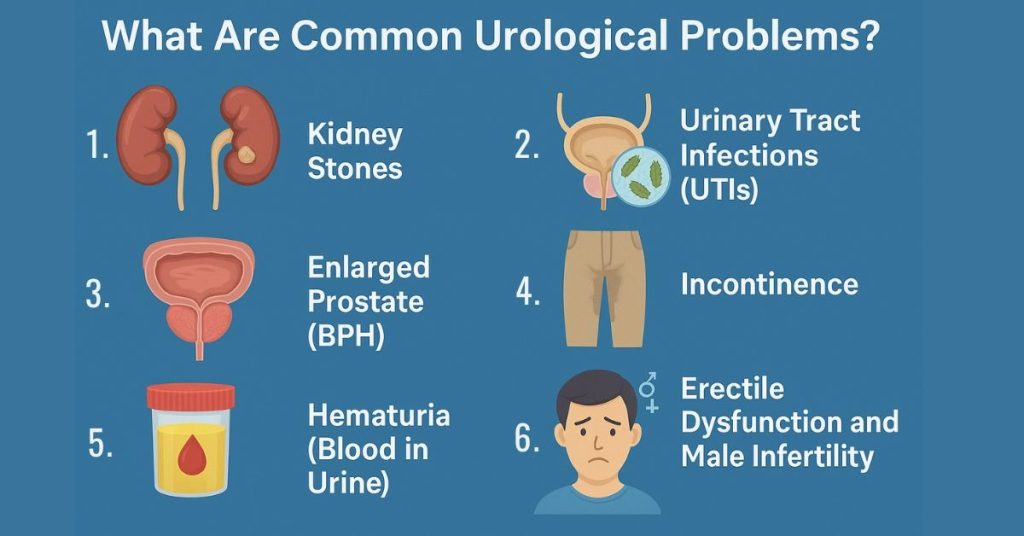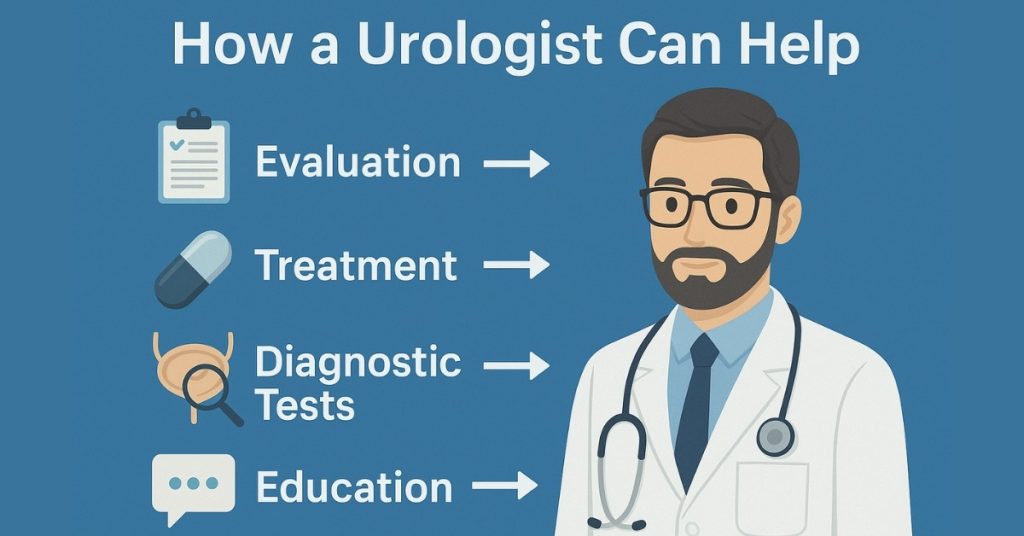Urological problems can significantly affect your quality of life if not addressed promptly. From urinary tract infections to kidney stones, these issues can range from mild discomfort to serious health complications. If you are experiencing persistent urinary issues, it’s crucial to consult a urologist near me to ensure timely diagnosis and treatment. Understanding the common urological problems and their warning signs can help you seek care early and prevent long-term complications.
What Are Common Urological Problems?
Urology deals with the urinary tract in both men and women, as well as the male reproductive system. Several conditions fall under this specialty, including kidney stones, urinary tract infections (UTIs), incontinence, and prostate-related issues. Some of the most common urological problems include:
1. Kidney Stones
Kidney stones are solid deposits of minerals and salts that form in the kidneys. One of the most alarming signs is severe pain in the back or side, often radiating to the lower abdomen. Other kidney stones symptoms may include nausea, vomiting, frequent urination, and blood in urine. Small stones may pass naturally, but larger stones often require medical intervention. If you notice any of these signs, it’s wise to schedule a consultation with a urologist near me.
2. Urinary Tract Infections (UTIs)
UTIs occur when bacteria infect the urinary tract, including the bladder, urethra, or kidneys. Common symptoms include a burning sensation during urination, frequent urges to urinate, cloudy urine, and blood in urine. Untreated UTIs can progress to kidney infections, which may present with fever, chills, and flank pain. Consulting a urologist near me can help manage recurrent infections and prevent complications.
3. Enlarged Prostate (BPH)
Benign prostatic hyperplasia (BPH) is a common condition in men over 50. It leads to difficulty urinating, weak urine flow, and frequent nighttime urination. While BPH is not cancerous, untreated cases can cause urinary retention and increase the risk of UTIs. If you experience these symptoms, a urologist near me can provide treatment options ranging from medications to minimally invasive procedures.

4. Incontinence
Urinary incontinence refers to the involuntary leakage of urine. It can be caused by weak pelvic muscles, nerve damage, or chronic conditions such as diabetes. Blood in urine may sometimes accompany severe cases, signaling the need for medical evaluation. A urologist near me can diagnose the underlying cause and recommend treatments such as pelvic floor therapy, medications, or surgical interventions.
5. Hematuria (Blood in Urine)
The presence of blood in urine—medically known as hematuria—can be alarming. While it may sometimes result from minor conditions like UTIs or kidney stones, it can also indicate more serious issues like kidney disease or bladder cancer. Any unexplained blood in urine warrants an immediate visit to a urologist near me to rule out serious underlying conditions.
6. Erectile Dysfunction and Male Infertility
Men may experience erectile dysfunction or difficulties with fertility due to urological issues, hormonal imbalances, or vascular problems. Early consultation with a urologist near me can help identify the cause and offer treatments ranging from medications to advanced reproductive techniques.
Warning Signs That Indicate You Should See a Urologist
Recognizing early warning signs can prevent serious complications. You should consult a urologist near me if you notice:
- Persistent kidney stones symptoms such as severe flank pain, nausea, or vomiting.
- Blood in urine, whether visible or detected during routine tests.
- Frequent or painful urination not associated with temporary infections.
- Urinary incontinence or sudden difficulty in urination.
- Unexplained lower abdominal or pelvic pain.
Early diagnosis and treatment can prevent long-term damage to your kidneys and urinary tract, as well as improve your overall quality of life.
How a Urologist Can Help

A urologist near me is trained to manage a wide range of conditions, from minor urinary tract infections to complex kidney and prostate issues. They utilize advanced diagnostic tools like ultrasounds, CT scans, and cystoscopy to identify the root cause of symptoms. Based on the diagnosis, treatment may involve lifestyle modifications, medications, minimally invasive procedures, or surgery. For conditions like kidney stones symptoms or recurring blood in urine, timely intervention is crucial to prevent complications.
Additionally, a urologist can provide preventive care, including screening for prostate cancer and monitoring kidney health. This proactive approach can catch problems early and reduce the risk of severe urological diseases in the future.
Conclusion
Urological problems are common, but they don’t have to disrupt your life. By understanding the warning signs, such as kidney stones symptoms and blood in urine, and seeking help promptly, you can prevent serious complications. Don’t wait until symptoms worsen—consult a urologist near me to get accurate diagnosis, effective treatment, and peace of mind.
Remember, early intervention is key, and a skilled urologist near me can make all the difference in maintaining your urinary and reproductive health. Take charge of your well-being today and stay proactive about your urological health.
